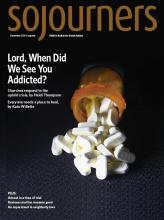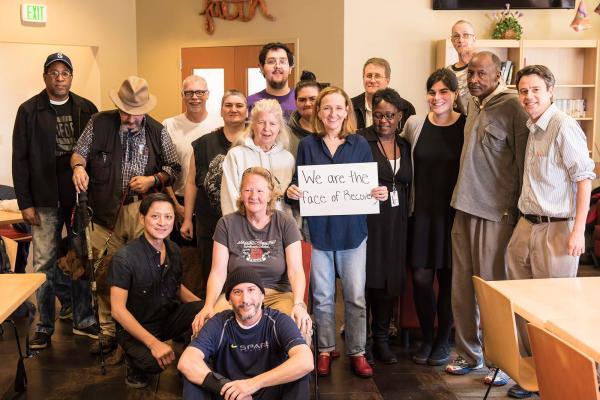When Kathy Killian Noe arrived in Seattle in 1999, she already had a lifetime of experience as a passionate advocate for the forgotten and the despised. She studied her new city with a simple question in mind: Where was the deepest need? She saw thousands of people struggling with mental illness and substance use disorders. She dreamed of finding a way to offer something those people were missing—something that might be called the advantages of family.
For lucky people, family means a reliable network of human beings who will never abandon you, who are always ready to give you the benefit of the doubt, whose love is reliable as rain. Family is the solace of being known and cherished. It’s having someone call you to check in, or bake you a cake, or just be happy to see you. It’s having people who need you. Some of us are born into families like this, and some of us find them in loving faith communities that create families of choice.
Noe faced a whole population suffering from the lack of that kind of support—people who often didn’t even know what it feels like to be cared for over the long haul in a thousand small but crucial ways. “Nine out of 10 Recovery Café members have experienced childhood trauma,” Noe said, “and many have suffered one trauma after another.” That these people also suffered from a variety of addictions and other mental health challenges only made their isolation more heartbreaking.
The most important ingredient in any meal is love. If one chooses the food, prepares the food, and presents the food with love, there will always be spiritual nourishment baked in along with the calories and flavors. And so, with the support of a small group of friends and New Creation Community—an ecumenical faith community in the tradition of Washington, D.C.’s Church of the Saviour—Noe set out to find a way to fill the need for that kind of nourishment. The result was Recovery Café.
Read the Full Article

